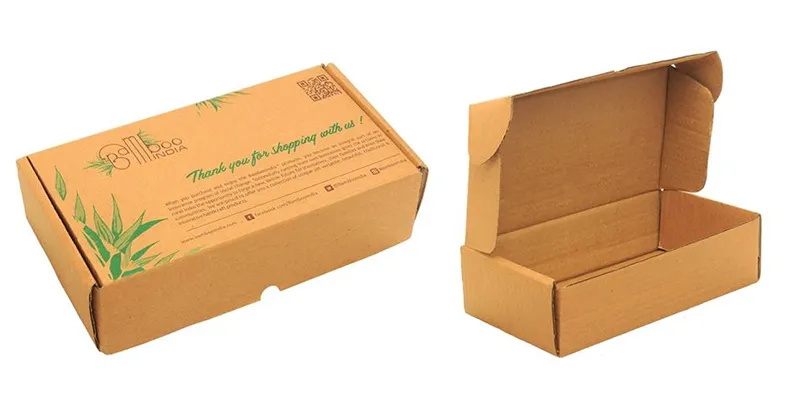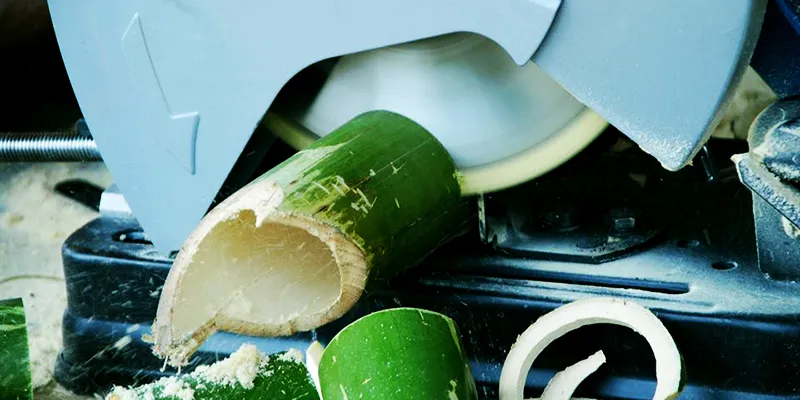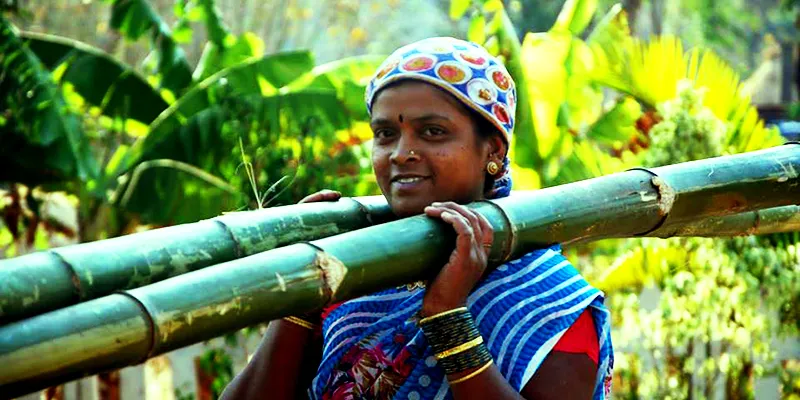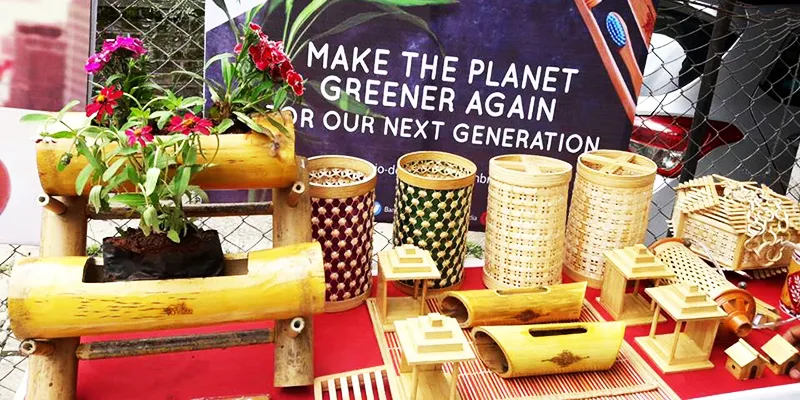Not for the income but the outcome: why Yogesh Shinde quit his European life to start Bamboo India
Bamboo India wants to change bamboo’s common perception from ‘the poor man’s timber’ to ‘the wise man’s timber.’
Over the centuries, human beings have been cleaning their teeth in a variety of ways, ranging from chewing sticks to using porcupine quills to resorting to rudimentary toothbrushes fashioned out of hog bristles and horsetail hair.
But the non-biodegradable plastic ones we use today were introduced in 1938. Every single one ever produced since then sits rotting in a landfill somewhere while we continue to buy a new one every three months to make our dentists happy. The toothbrush is second only to plastic bags in the plastic pollution generated. In India, more than 150 million toothbrushes are thrown away each month.
Expat to entrepreneur
For entrepreneur Yogesh Shinde, environmental concerns were not a priority when he was starting up. The former Associate Vice President of Barclays, Pune, was posted in Germany and living out every middle-class Indian’s dream of world travel and prosperity. He was jolted out of his bubble when, during the family’s annual vacation back to India, he
He was jolted out of his bubble when, during the family’s annual vacation back to India, he learnt a close family friend, a farmer by profession, had committed suicide. He says, “It was not like I was hearing about farmer suicides for the first time in my life. But this was the first time I felt the impact at a personal level.”

During his travels across Europe Yogesh had been stunned by the economic disparity between western farmers and their Indian counterparts. Now he decided to act on addressing it. He says, “Everyone wants to do something for their society, people, and country. I am not an exception. We cannot keep blaming the government and society all the time. But what about what I am doing for them? I must act and use my education the best way I can.”
One of the main reasons behind the prosperity of European farmers, Yogesh found, was the seamless integration of farming and culture. “For example, barley is a major crop in Germany. That’s why they promote their beer culture. Now Germany is a world famous destination for its beer fests. In France, I found the same to be true with their wine culture,” he explains.
Being a Pune boy, Yogesh found the bamboo cultivations in huge numbers in Maharashtra to be apt for his intentions. Upon further study, he discovered using bamboo would be serving the dual purpose of helping the farming community and targeting the plastic epidemic that has consumed our lives.
Rebranding the poor man’s timber
Yogesh and his wife, Ashwini Shinde, founded Bamboo India in the village of Velhe near Pune in 2016. They wanted to change bamboo’s common perception from ‘the poor man’s timber’ to ‘the wise man’s timber.’ Their idea is to move away from the dominant handicrafts and furniture industry and use bamboo to manufacture viable alternatives to household plastic products.
Bamboo India’s product catalogue contains an array of examples ranging from speakers, notebooks, clothes pegs, pens, desk organisers to, of course, the much-vaunted toothbrush. These are sold via an e-commerce platform. They also have several offline tie-ups and avenues where they sell their merchandise.
Plastic epidemic

Plastic, a by-product of the destructive fossil fuel industry, takes a thousand years or more to bio-degrade. It is a toxic material composed of harmful chemicals that have invaded our ecosystem and our bodies. Studies suggest that by 2050 there will be more plastic in the oceans than fish.
The everyday use of plastic releases endocrine-disrupting chemicals into our bloodstream, which causes a multitude of health problems. For example, it leads to lower sperm count in men and the BPA contamination accounts for fertility disorders like PCOS in women. A recent study shows that humans have produced 8.3 billion tonnes of plastic since the 1950s and most of it has ended up in landfills or polluted our oceans and rivers, threatening a near permanent contamination of our environment.
Wonder grass

Bamboo is just one type of grass, but it has over a thousand species. It is a material so versatile that you can make houses, furniture and delicious nutrient-rich food out of it. While bamboo is pliable enough to be moulded into anything—be it weapons or musical instruments—it is stronger than steel, earthquake-proof and is the only plant to have survived the nuclear bombing at Hiroshima.
India is the second largest bamboo-growing country in the world, with about 125 species of the plant being found in our country. But it contributes to only four percent of the global bamboo product market share. It is the world’s fastest growing grass, requires scant attention and no pesticides while growing and absorbs greenhouse gases and releases 35 percent more oxygen into the atmosphere than hardwood trees.
Rough start
For Yogesh, the biggest challenge of starting up was raising funds. After several banks declined his requests for a loan, he mortgaged his home to secure the seed fund. His gamble paid off when, he says, “We crossed more than Rs 50 lakh of business in the first seven months without any external financial support.” In the past nine months, they have exported to seven countries, reached more than 5,000 customers in India, saved 20,000kg of plastic waste from landfills and generated valuable employment for 12 farmers. “Now we are targeting to prevent 1,00,000kg plastic waste by the end of 2017,” he says.

Though the startup has crossed into profitability, it needs considerable investment to bring to fruition Yogesh and Ashwini’s vision for growth. “One major obstacle is not having our own manufacturing setup. Currently, we are dependent on external workshops. We need to buy our own machines so we can have everything under one roof. When this happens we will setup a Common Facility Centre in Velhe. Here we want to train farmers and artisans to enable them to set up their own micro bamboo businesses,” he shares.
Bamboo India’s long-term success hinges on a variety of factors, not the least being the customer’s willingness to shell out Rs 120 for a toothbrush when they can get a plastic one for as low as Rs 20 and their level of embrace of the bamboo culture that Yogesh and Ashwini are propagating. Yogesh is convinced that consumers are waking up to the alarming degradation of the planet’s resources and are willing to make sustainable choices in their lifestyles. Failure is not an option for Bamboo India because, he says, “The farmers are looking to us with great expectations.”
Highs and lows
“I like travelling and had been to around 20 countries with my family before starting up. Since starting work in Bamboo India we haven’t taken a single day’s leave to even attend family functions. Transitioning from a financially prosperous life in Germany to one with a strained budget in India has been quite hard. This effort is not for the income but the outcome. So that’s alright,” says Yogesh.

For Yogesh, the best part about starting up has been the feedback from his customers. “They feel that they are doing something positive for society just by making a conscious purchase and it is a thrill to connect with them on this issue,” he says. “There is also nothing like the realisation that we are a bridge between the farmers and society. This elevates our sense of purpose.”
His advice to aspiring changemakers: “Believe in your dream and focus on what you are doing. The rest will fall in place.”







